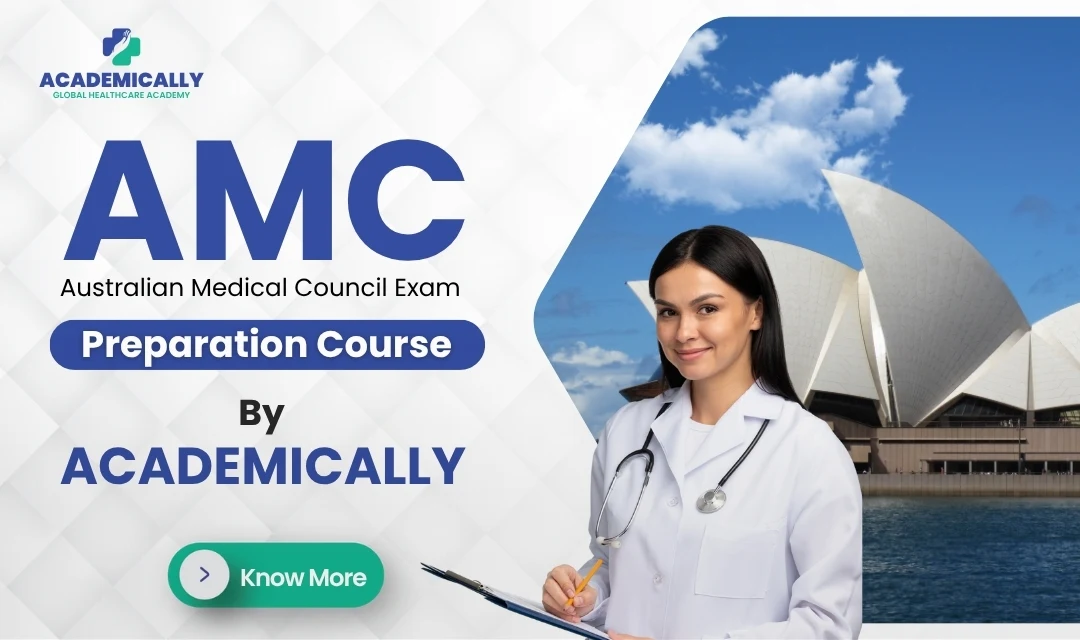Recent recruitment insights gathered from leading Australian hospitals reveal a clear trend:
“Clinical knowledge can be taught. Communication, empathy, and skills cannot be. Those who master them are the ones we shortlist.”
The Harsh Reality of Global Doctors Hiring: Your Degree isn’t Enough Anymore
The global demand for healthcare professionals has risen, but so has the competition, especially for International Medical Graduates (IMGs). With the surge of AMC 1 bridging courses, some Australian hospitals now receive over 3,000 applications for a single intake. Recruiters report being flooded not only with IMG applications but also from UK doctors holding full registration, naturally giving them a competitive edge due to familiarity with Western healthcare communication styles.
Recruiters consistently highlight that IMGs with limited experience and mediocre communication skills struggle to advance, even after meeting basic eligibility criteria such as passing AMC Part 1 or achieving the minimum English test score.
An internal review conducted across several state health services echoes this sentiment. Healthcare leaders, physicians, nurses often cite:
“The clinical understanding is fine. But the candidates lack confidence, empathy, and problem-solving skills. They struggled to engage naturally, and that raised red flags for patient interaction.”
In other words: “Strong communication is no longer an optional requirement. It’s the ultimate passport to employability.”
Why Communication Matters in Healthcare
1. It Saves Lives
Communication breakdowns are directly linked to medical errors, delayed interventions, and poor patient outcomes. The World Health Organisation identifies ineffective communication as one of the leading causes of preventable harm in healthcare systems worldwide.
A clear conversation between a nurse and a physician about a medication order, or between two consultants during patient handover, can literally mean the difference between recovery and readmission.
2. It Builds Trust
Patients rarely evaluate doctors by technical expertise—they judge by how well they are heard and understood. When doctors explain conditions with empathy, use accessible language, and check comprehension, patients feel reassured and valued. This trust increases adherence and satisfaction.
3. It Strengthens Team Dynamics
Hospitals are high-pressure, multidisciplinary environments. A single breakdown in information flow can jeopardise coordination. Teams with effective communicators display smoother workflow, faster decision-making, and lower burnout rates.
4. It Reflects Professional Maturity
In interviews and clinical settings, communication conveys confidence, emotional intelligence, and leadership potential—all qualities recruiters assess carefully.

Top 5 Benefits of Effective Communication in Healthcare
1. Improved Patient Outcomes and Safety
The link between clear communication and patient outcomes is well-documented. A 2023 BMC Health Services Research study found that patients who perceived their clinicians as effective communicators reported significantly better emotional well-being and treatment adherence.
In complex cases, such as oncology or psychiatry, patients rely heavily on the provider’s ability to explain, empathise, and empower.
2. Enhanced Patient Satisfaction
Satisfied patients are more compliant, less likely to seek unnecessary second opinions, and more likely to recommend the provider. Communication accounts for a majority of satisfaction survey scores used in hospital quality assessments.
3. Better Teamwork and Reduced Burnout
Teams that communicate well operate with fewer misunderstandings and conflicts. This not only enhances care coordination but also creates a more supportive work culture—reducing emotional exhaustion and turnover.
4. Career Advancement and Leadership Opportunities
Healthcare institutions seek clinicians who can represent them confidently before patients, committees, and the community. Doctors who articulate ideas clearly are often chosen for leadership tracks, departmental roles, or education positions, directly translating into higher compensation and professional growth.
5. Global Employability and Salary Growth
In international recruitment, communication competence has become a currency. Recruiters report that candidates who demonstrate empathy, fluency, and cultural adaptability during interviews command higher salaries and faster job offers.
Requirements for International Medical Graduates to go to Countries Abroad, like Australia
Based on feedback from multiple Australian state health services, candidates are most likely to be shortlisted if they meet a blend of academic, experiential, and interpersonal benchmarks.
| Parameter | Preferred Criteria for Interview Shortlisting |
| English Proficiency | PTE 75 to 85 or equivalent (IELTS > 7.5) |
| Experience | 4 to 6 years of clinical experience |
| Postgraduate Qualification | Master’s degree preferred |
| Field of Experience | Emergency, Anaesthesia, Gynaecology & Obstetrics, Psychiatry |
| Age | Below 35 (for regional placements) |
| AMC Status | Completion of Parts 1 and 2 |
| Commitment | Willing to serve in regional areas for 5 to 7 years |
| Marital Consideration | Partner employability in the regional labour market |
| Soft Skills | Confidence, empathy, active listening, teamwork, problem-solving |
Recruiters repeatedly stress that just completing exams or meeting the minimum English requirement will not suffice. What tips the scale are soft skills, particularly communication.
Case Studies that Define How Effective Communication Affects
Dr. Ivan : A Case Study in Confidence and Adaptability
Dr. Ivan, a compassionate physician from the Philippines, represents the new generation of globally-minded healthcare professionals. Armed with a Doctor of Medicine from Ateneo de Manila University and hands-on experience in emergency, surgery, and paediatrics, he exemplifies strong technical grounding.
What distinguished him in recent recruitment interactions, however, wasn’t just his resume. It was his ability to articulate his experiences clearly and empathetically. During mock interviews, his structured responses, situational awareness and active listening immediately resonated with assessors. Recruiters described him as “calm, clear, and collaborative”: the qualities that inspire patient trust.
Dr. Ivan’s example underscores that effective communication amplifies competence, transforming it into confidence.
Dr. Veenal : The Power of Clarity and Empathy
With over a decade of postgraduate experience, Dr. Veenal brings depth in clinical practice and medical education. Holding an MD in Community Medicine, she had already cleared the AMC CAT MCQ and excelled in her PTE.
What impressed recruiters most was her clarity of thought and empathetic communication style. Whether discussing preventive medicine or patient counselling, she displayed the ability to translate complex medical issues into simple, human language.
Her performance exemplified how communication bridges the cultural gap for IMGs and makes them stand out even among technically stronger peers.

When Communication Gaps Cost Opportunities
Not all outcomes are success stories. At least, not yet. Recently, four promising doctors attended interviews with Australian hospitals but were not shortlisted for the second round. Their academic records were solid, and their clinical knowledge was sound. Yet, feedback from the recruiting physician at Bendigo Hospital was telling:
“They were hesitant, overly cautious in conversation, and failed to demonstrate empathy or real-time problem-solving. We needed to feel they could connect with patients and staff. That confidence was missing.”
This pattern isn’t rare. Hospitals report that while IMGs are often academically excellent, they struggle to express ideas confidently in real-time scenarios, especially when English is a second language.
How Effective Communication Directly Influences Your Salary Abroad
Recruiters often equate communication excellence with reduced organisational risk. Here’s how that impacts earning potential:
- Lower Supervision Requirements: Communicative doctors integrate faster, reducing the need for extensive orientation.
- Better Patient Feedback: High satisfaction scores directly impact hospital funding models, especially in systems like Australia and the UK.
- Leadership Readiness: Strong communicators are quickly promoted to supervisory roles, which command higher salaries.
- Versatility in Regional Settings: Regional placements rely heavily on autonomy. Doctors who communicate clearly handle broader duties, making them more valuable.
7 Proven Strategies to Improve Communication Skills
1. Master the Language Beyond Test Scores
Aim for high English proficiency (PTE 75–85 or IELTS > 7.5), but also practise real-world fluency. Explaining complex ideas in everyday language, managing different accents, and using tone appropriately.
2. Engage in Mock Interviews and Role-Play
Structured interview practice simulating patient or panel interactions builds fluency under pressure. Academically’s English proficiency programmes now incorporate these exercises specifically for IMGs preparing for state interviews.

3. Practise Active Listening
Communication is a two-way process. Reflect, paraphrase, and validate what patients or colleagues say. This demonstrates empathy and attentiveness.
4. Use Frameworks like SBAR (Situation, Background, Assessment, Recommendation)
SBAR is globally recognised in clinical communication. It helps professionals present cases succinctly and logically during handovers or emergency discussions.
5. Seek Feedback Regularly
Request peers or mentors to observe and critique your communication style. Constructive feedback accelerates self-awareness.
6. Cultivate Cultural Competence
Learn the social etiquette, patient expectations, and communication norms of your target country. Understanding subtle differences in tone and hierarchy is invaluable.
7. Display Confidence Through Non-Verbal Cues
Maintain open body language, steady eye contact, and a calm voice. These cues often carry as much weight as spoken words during interviews or patient encounters.
The Path Forward: Communication as a Career Catalyst
The upcoming recruitment cycle for Australian state health services will see thousands of IMGs vying for limited spots. Interviews will begin rolling out in the coming weeks. Even if you are not yet shortlisted, this is the ideal time to begin. Developing effective communication is a long-term investment that enhances every dimension of a medical career from patient outcomes to salary hike. The healthcare landscape is evolving rapidly, and while technology and credentials open doors, communication keeps them open.
Final Takeaway
For modern healthcare professionals, especially those pursuing opportunities abroad. Communication is no longer a soft skill. It’s a core clinical competency. Technical knowledge opens the door, but effective communication earns you the seat at the table and, often, the better offer.





